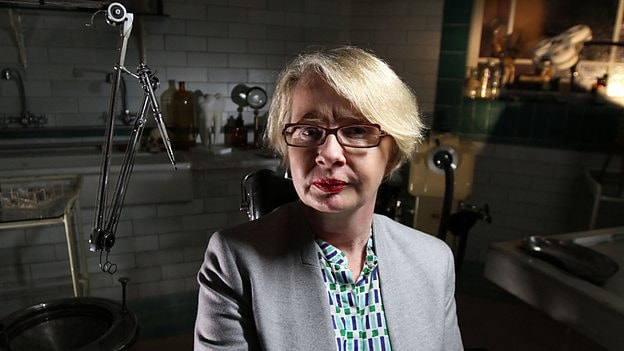Proper dentists didn’t exist across the pond until the 1800s. Prior, the care of Britains’s mouths was in the hands of blacksmiths and barbers who doubled as surgeons.
Want all the grisly details?
Historian Professor Joanna Bourke presents a documentary on the history of dentistry in Britain: Drills, Dentures and Dentistry: An Oral History, BBC Four.
You may be familiar with the inventor of the first toothbrush (William Addis, in 1780,) but were you aware that in the 1600s it was believed that a toothache was caused by a worm burrowing in the jaw?

Writer, historian and author of the BBC’s ‘Eyewitness’ audiobooks, Professor Joanna Bourke, investigates dentistry’s revolution over the past five centuries. (Photo courtesy bbc.co.uk)
Before today’s minty fresh mouth cleansers, abrasives such as ground-up oyster shells were placed on the finger and rubbed into teeth. Since this technique scraped away the enamel, exposing the nerves, it didn’t last long.
Time marched on, as did modern dentistry, but in the early 20th century, oral health treatment was still so expensive that some opted to have all their teeth pulled to spare themselves a lifetime of pain.
In her interview with express.co.uk, Professor Bourke says: “Having all your teeth removed was considered the perfect gift for a 21st birthday or a newly married bride.” Porridge, anyone?
If this taste of British history leaves you wanting a full serving, tune in.

